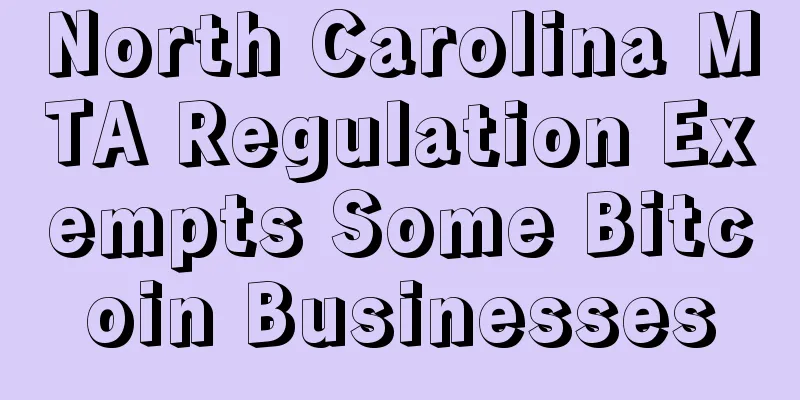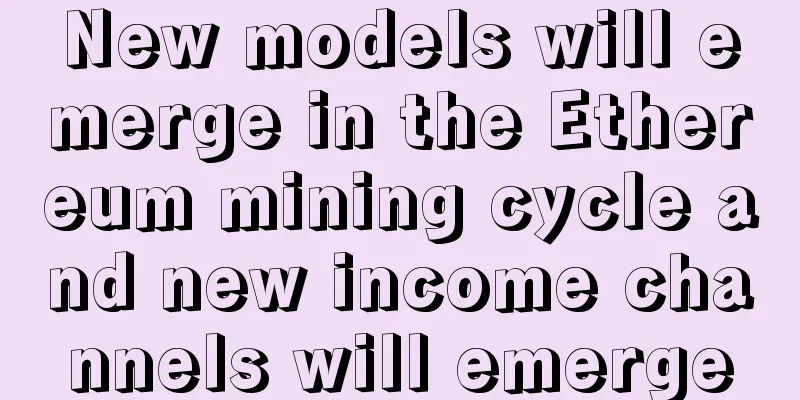North Carolina MTA Regulation Exempts Some Bitcoin Businesses

|
On December 10, the U.S. state of North Carolina has updated the state’s Money Transmitter Act (MTA) regulatory bill to exempt some Bitcoin and blockchain businesses to avoid problems that have occurred in other states in the United States. The North Carolina Office of the Banking Commissioner (NCCOB) has exempted digital currency miners, non-financial blockchain services, and multi-signature and non-custodial wallet providers from regulation under the state’s money transmitter act (MTA), according to a significantly updated money transmitter FAQ page. Notably, the exemption is the result of a collaboration between the banking commission and the cryptocurrency industry lobbying group, the Council for Digital Commerce (CDC). The NCCOB organization has previously expressed support for a bill that would cover business activities related to bitcoin and digital currencies. According to the Association for Digital Commerce and its partners, North Carolina’s choice to work directly with industry stakeholders stands in stark contrast to New York’s BitLicense, which went into effect earlier this year. Amy Kim, an attorney at BuckleySandler LLP, said in a statement:
In addition to the exemptions, the agency also specified that digital currency transmissions are subject to MTA regulation, and virtual currency “transactions and managers” will be subject to regulation depending on their business models. “A trader who sells his or her own virtual currency would generally not be considered a virtual currency transmitter under North Carolina’s MTA regulations. In contrast, a trader who holds customer funds while arranging third-party purchases and sales and exchanges virtual currency for fiat currency between buyers and sellers would generally be considered a virtual currency transmitter under North Carolina’s MTA regulations,” the FAQ page states. Additionally, North Carolina further clarified that digital currency businesses in the state do not need to apply for a special license, noting that it “is subject to the same standard” as other entities operating as fiat money transmitters. Overall, this marks a significant update to the agency’s FAQ page, providing new regulatory clarity for businesses in the digital currency industry. Previously, North Carolina law exempted only licensed money transmitters, according to bitcoin advocacy group Coin Center. Original article: http://www.coindesk.com/north-carolina-exempts-bitcoin-regulation/ |
<<: Satoshi Nakamoto 'removing the mask' could drive Bitcoin price higher
>>: Bitcoin Magazine interviews BTCC COO Miao Yongquan
Recommend
Ethereum Shanghai upgrade may start as early as October
According to official news, Ethereum developers a...
A careless look in front of acquaintances
Nowadays, there are many kinds of people. Some pe...
Solution for A card mining ETH computing power 1.x
Easy miner, creating value for users. Last month ...
Analysis of moles on men's chest
People often believe that people with moles on th...
What does a mole on the forehead mean? Are women with moles on the forehead good?
Moles can affect a woman's appearance, and th...
What are the characteristics of a woman who is most likely to bring good fortune to her husband?
Men all hope that their wives will be someone who...
What kind of face shape is poor?
In reality, face shape is very important for many...
When will the Fed cut interest rates?
Last year I wrote an article arguing that we cann...
Is it good to have a mole on the buttocks? Why do I have a mole on my butt?
Is it good to have a mole on the buttocks? Why do...
China's Bitcoin Mining Firms Hold Energy Conference
Topics discussed included hydropower, wind power,...
EIP-1559 is officially included in the Ethereum "London" hard fork upgrade | A brief discussion on the application and impact of EIP-1559 in the Filecoin network
It is reported that EIP-1559 has been officially ...
Deutsche Bank releases report: recommends companies explore blockchain technology
Although most cryptocurrency enthusiasts still fo...
Always using unfair means to compete
Where there are people, there will be the world; ...
What does a short philtrum look like? Is a short philtrum good or bad?
Short philtrum and stinginess From the face, we c...
Force Research | Filecoin knowledge points that new investors must pay attention to
This article was originally written by IPFS Force...









